Judging from the replies I received after my original request for information on earthworm control, the overwhelming majority of gardeners are shocked to hear that someone would want to kill earthworms. So I decided to write at length on the topic, and the way that I see it, there are several issues involved. At the very least, this essay will be a very controversial read for gardeners. Throughout the essay, when I mention earthworms I mean collectively the common earthworm and the larger night crawler. In fact, the night crawler is often the worst offender of the two.
I knew it was a long shot to ask moss gardeners the question of earthworm control but I had become frustrated with trying to find an answer and sometimes long shots do pay off. After all, it was a moss garden and surely some other moss gardener must have had the same problem. In fact, I believe they have but apparently had not found a solution either, or they have been conditioned to believe that earthworms are a special gift from the gods, certainly to be treasured. By the time I asked for help on the gardeners forum I had been actively searching for a solution for over a month, and getting nowhere.
First, some basic facts about my situation are in order. The moss garden here is about 5,000 square feet and has had no vegetation under trees for 5 years. Even after all that time there was still an extremely high population of earthworms; I could easily pick out 10 or more of the critters in 1 shovel of soil. There are open areas on three sides of the tree-shaded garden so there is considerable air movement through it, especially in the spring and autumn. Because of this, the mosses most suited and the ones that have been colonizing most successfully are several species in the flat growing Eurhynchium genus. They are feathery and flat, anchor to the soil and grow slowly because the air movement does not allow high moisture around them for extended periods. These species all stay nicely green even when totally dry during hot droughty periods. They do have the potential to form a nice groundcover and can take some foot traffic. The taller growing mosses that IÂve occasionally tried to plant in donÂt make progress because the air movement keeps the tops dry, even when the soil is wet after a rain. Besides that, birds often peck it to pieces and pull it from the soil looking for worms. (I grow my vegetables in a mulched garden, sometimes the birds root around in the mulch for worms so severely that they dig out vegetable seedlings and smother others by covering them with tossed around mulch.)
Eurhynchium species thrive on a compacted soil surface, actually requires it to stay in place. They also grow over rock and wood near or on the soil surface. Earthworms constantly loosen the soil surface, working under the delicate moss and dislodging it. I think worms could work under thick mat forming mosses and a person would hardly notice it, but in this case itÂs fatal. Also, contrary to what many folks seem to believe, the earthworms, and especially night crawlers do eat the live moss, especially when deprived of the usual dead organic debris they like to dine on. They donÂt give up their homes easily; they donÂt leave an area if organic matter is sparse. Instead, they churn through greater amounts of soil and digest out every tiny morsel. Many times I have seen chewed up pieces of moss pulled down into their holes, often still green. The moss disappears for some distance around a night crawlerÂs hole and in return I get a pile of loose castings. How much can they eat? Well, I have seen areas 5 feet across totally killed.
There is a kind of religious fervor surrounding earthworms, especially among gardeners. Earthworms are these sacred creatures that make all good things happen, lots of worms gives you healthy soil and plants canÂt help but grow stupendously. Without earthworms you canÂt have healthy soil and your plants will probably fail. These notions are all so much baloney. Oh sure, the presence of numerous earthworms may mean you have healthy and fertile soil, however, they didnÂt make it that way. Your soil would still be healthy and fertile without the earthworms. Common earthworms and night crawlers are introduced organisms to North America along with the colonists. So how did the flora and fauna thrive for thousands of years without them? The fact of the matter is, there is nothing beneficial that they do that the natural soil processes, insects, bacteria and fungi donÂt already do. Earthworms dramatically speed up the process, which is certainly not necessary in a balanced soil ecosystem. I believe the bounty would be just as great in my vegetable garden without them, perhaps even more so. They do not increase the lushness of the soil, the release of nutrients from organic matter breaking down will still occur with the bacteria and fungi. Release of nutrients can actually be too rapid, thereby allowing them to leach from the soil with heavy rainfall.
In my moss garden I consider them to be exotic pests. I am a lifelong gardener and I believe that the best place for an earthworm is on the end of a hook when IÂm hungry for a supper of fish.
Speaking of earthworms as exotic pests, I vividly remember my college forest soils professor making the statement to the class that earthworms are the one of the worst pests of forests. This was 40 years ago. The shocked, indignant reaction of nearly all the students was immediate. They had all been told since childhood that earthworms are necessary for a healthy soil. He later took us on a field trip to a forested area to show us a large area that had been infested with earthworms and he reported that each year the area grew in size. The entire leaf mold layer was gone and much of the native forest floor vegetation had died out. The exposed soil surface was loose and increased erosion was taking place. I have since seen documentaries by ecologists saying the same thing. Earthworms are killing native wild flowers in forest areas by destroying the mulch protection of the leaf mold layer.
Now I get to the subject of controlling earthworms. I have tried every method suggested to me on a small scale, even those that would be prohibitively expensive on a large scale like in my moss garden. As mentioned earlier, limiting organic matter did not get the earthworms to move on. Soil drenches like mustard, vinegar and ammonia got a few to come to the surface, though many more simply retreated deeper into their burrows only to come back up a few days later and resumed their damage. For adequate control I obviously needed something that killed on contact and prevented them from retreating downward. The worms I did pick up I threw out on the lawn, a feast the birds appreciated. My garden is already overpopulated with earthworms and I didnÂt want more worms or birds in there. The other disadvantage of these chemicals is that there was noticeable moss burning from some of them.
Next I tried the agri-chemical suppliers for the farmers. Most of these guys were equally shocked at my request, while those that understood that there really could be a problem refused to recommend anything. Since nothing is legally allowed on labels for earthworm control they would not say which would work, they were afraid of the government on their heads. After literally hours on the internet I finally connected with an international turf management forum. I discovered that turf managers for golf courses, cricket fields and croquet lawns have a need for earthworm control. The uneven turf, especially on areas like golf greens caused by heaps of castings is unacceptable. Some of these folks, especially in other countries are using some pretty awful stuff for lack of availability of sensible control methods on the market. Resorting to heavy rolling of the turf to smooth out the casting mounds is an unfortunate necessity for some managers. This in turn compacts the soil, eliminating even more aeration of the soil than the earthworms were giving. Lawn care contractors for homeowners do the same, making money on earthworm damage.
I did learn of a good earthworm control chemical from the turf managers. While itÂs not cleared for that use, it is cleared for use on soil insects and grubs, and is widely sold. So if asked, IÂm using it for grubs, controlling my earthworms is just a beneficial side effect. I applied it as a soil drench in combination with a wetting agent in early autumn, after irrigating the moss garden to draw the earthworms closer to the surface. Earthworm activity ceased immediately. The earthworms didnÂt come to the soil surface, certainly an advantage as that eliminated the risk of secondary poisoning of birds. I did notice that mole activity ceased in a few days; secondary poisoning of them would be a definite plus. Although itÂs also possible that the moles just moved away in hunger because earthworms are a major food item for them.
After 2 weeks a minor amount of earthworm activity could be observed. The chemical is short lived and the earthworms that were too deep for the application to reach were left alive to come to the surface. I stress that the activity was greatly reduced, IÂll watch in spring and if a second application is warranted for complete control IÂll do it then. ItÂs a good characteristic of the chemical to be short lived to avoid ground water contamination should there be a heavy rain. The final major advantage of this chemical is that it did not damage the moss as the other control methods did.
By late fall I noticed tiny bits of moss re-establishing in the earthworm devastated areas. ItÂll probably take 2 years to get good moss coverage, but I finally will have the progress I have been straining to see for 5 years. Do I feel guilty over the dead earthworms? Definitely not, no more than killing aphids on the rose bushes. May they rest in peace.

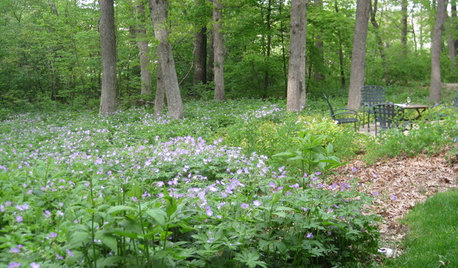


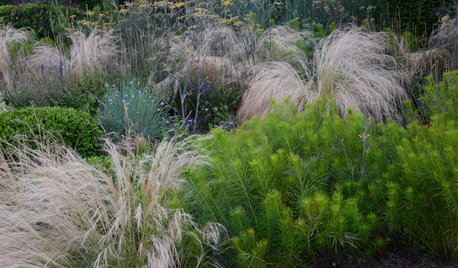
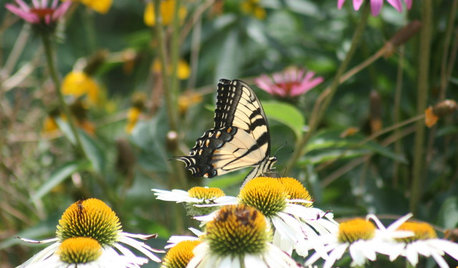
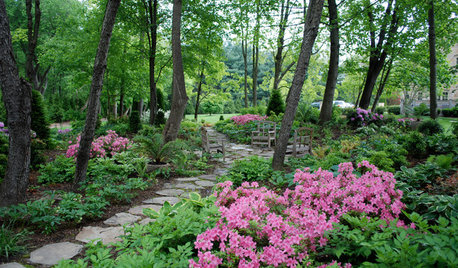

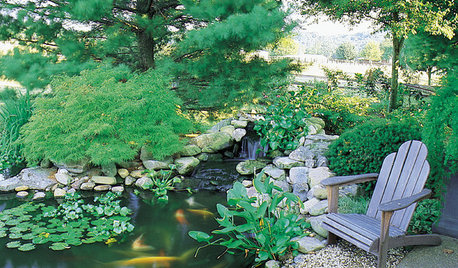




botann
Iris GW
Related Discussions
Mimosa - an invasive plant discussion
Q
Earthworms Discussion
Q
Worm Lecture
Q
The Dark Side of a Good Friend to the Soil
Q
mazer415
taz6122
ezgrower
tanya47
ezgrower
ezgrower
mazer415
ezgrower
hykue Zone 7 Vanc. Island
oetkb789_gmail_com